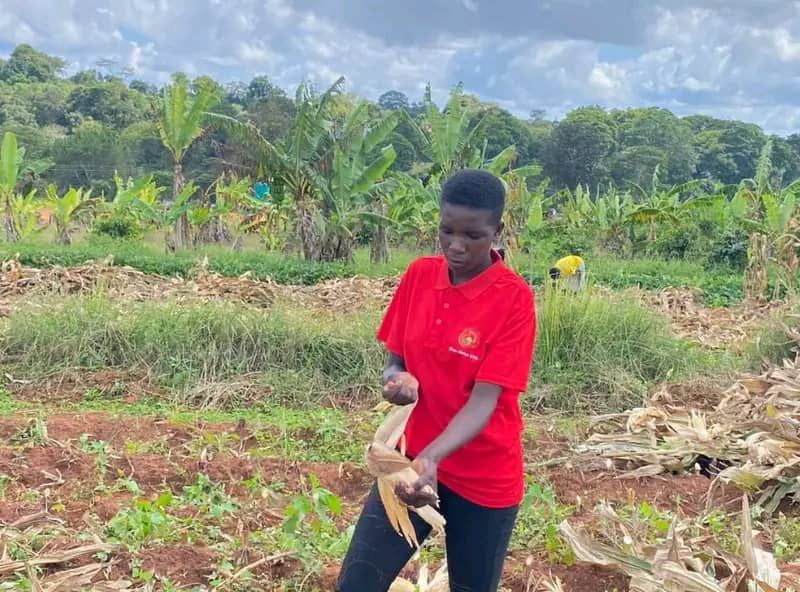By Burnett Munthali
Two Malawian students currently enrolled at China Agricultural University have highlighted critical gaps hindering agricultural productivity in Malawi. Shyrene Jere and Francina Lerato Kuwali, while conducting research, identified significant disparities among Malawi’s agricultural researchers, extension workers, and farmers, which are impeding crop production efforts in the country.
Shyrene Jere emphasized the urgent need to bridge these gaps, particularly noting their observations during research on Science and Technology Backyards (STB) at the Residential Training Center under the Mzuzu Agriculture Development Division in Mzuzu. This innovative approach aims to address challenges faced by farmers and optimize yield in their fields.

According to Francina Lerato Kuwali, the STB technology advocates for soil testing before cultivation. This method helps farmers determine the specific types of fertilizers and other inputs that are most suitable for enhancing crop growth in particular regions. By tailoring agricultural practices to local soil conditions, farmers can optimize resource use and improve productivity sustainably.
Macshamed Mhango, Principal of the Residential Training Center in Mzuzu, expressed optimism about the potential impact of STB technology if implemented nationwide. He highlighted that widespread adoption could empower more farmers across Malawi by enabling them to make informed decisions about their farming inputs. This, in turn, could lead to enhanced crop yields and overall agricultural productivity.
The insights provided by Shyrene Jere, Francina Lerato Kuwali, and Macshamed Mhango underscore the importance of integrating scientific innovations and tailored agricultural practices into Malawi’s farming sector. Addressing the disconnect between research, extension services, and farmers is crucial for overcoming productivity challenges and promoting sustainable agricultural development in the country.
As Malawi continues to explore avenues for agricultural improvement, initiatives like the STB technology offer promising solutions to enhance food security, livelihoods, and economic resilience among farming communities. By fostering collaboration between academia, extension services, and local farmers, Malawi can harness its agricultural potential more effectively and achieve greater food self-sufficiency.


